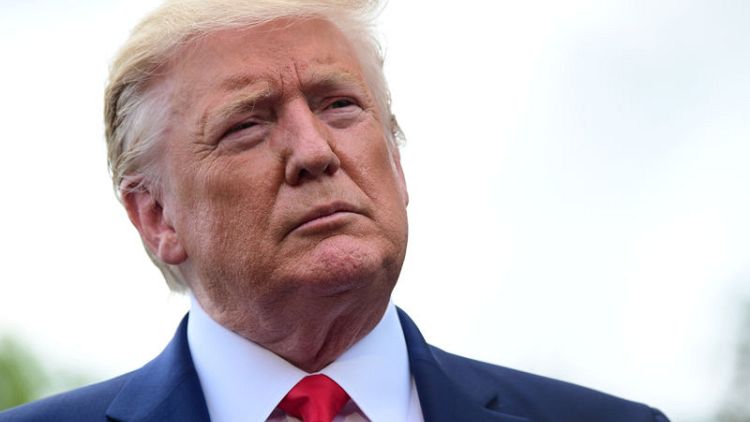By Steve Holland
WASHINGTON (Reuters) - U.S. President Donald Trump said on Monday that talks with Afghanistan's Taliban leaders are off and that he was still considering a U.S. troop drawdown in the country.
"They're dead. They're dead. As far as I'm concerned, they're dead," Trump said of the talks, speaking with reporters as he left the White House for North Carolina.
Months of U.S. negotiations with the Taliban militants, who control large parts of Afghanistan, ended on Saturday when Trump abruptly announced he was cancelling secret talks at Camp David with the Taliban and the country's president, Ashraf Ghani. The talks were aimed at securing an agreement to pull U.S. troops out after nearly 20 years of war.
A draft accord agreed last week would have seen about 5,000 American troops withdrawn over coming months in exchange for guarantees that Afghanistan would not be used as a base for militant attacks on the United States or its allies.
Despite the Afghan government's wariness of negotiating with the Taliban, Trump had hoped having both parties at the presidential compound in Maryland could produce an agreement.
Trump said he knew the gathering could not take place after the Taliban claimed responsibility for a suicide attack last week that killed an American soldier in the capital Kabul.
The end of the talks has fuelled fears of a further increase in violence across Afghanistan.
Fighting continued in the region even as talks took place, with the Taliban stepping up attacks in recent weeks. An American general said on Monday the U.S. military is likely to accelerate the pace of its operations in Afghanistan to counter the upsurge.
Bringing U.S. troops home from Afghanistan has been one of Trump's main foreign policy objectives, and the Republican president said his administration was still thinking about a drawdown of the 14,000 U.S. soldiers in the country.
"We'd like to get out but we'll get out at the right time," he said.
Afghan President Ghani, who was sidelined from months of negotiations between U.S. officials and Taliban representatives, had been deeply suspicious of the talks, which sought to agree a timetable for an American withdrawal.
On Monday, Ghani made a renewed call for peace but insisted the Taliban must observe a ceasefire, as he sought to regain a hold on the peace process.
Meanwhile, Trump defended his decision to offer up the historic Camp David compound to a militant group that harboured Sept. 11 mastermind Osama bin Laden and is still killing Americans, so close to the 18th anniversary of the 2001 attacks.
"Camp David's held meetings with a lot of people that would have been perceived as being pretty tough customers and pretty bad people," he said. "There have been plenty of so-called bad people brought up to Camp David for meetings. And the alternative was the White House, and you wouldn't have been happy with that either."
Located in the Catoctin Mountains outside Washington, the Camp David retreat has been used to host foreign dignitaries and was the site of landmark peace efforts, including when President Bill Clinton hosted Israeli Prime Minister Ehud Barak and Palestinian leader Yasser Arafat.
(Reporting by Steve Holland and Makini Brice in Washington; Hamid Shalizi and Hameed Farzad in Kabul; Writing by Doina Chiacu; Editing by Sonya Hepinstall and Jonathan Oatis)
